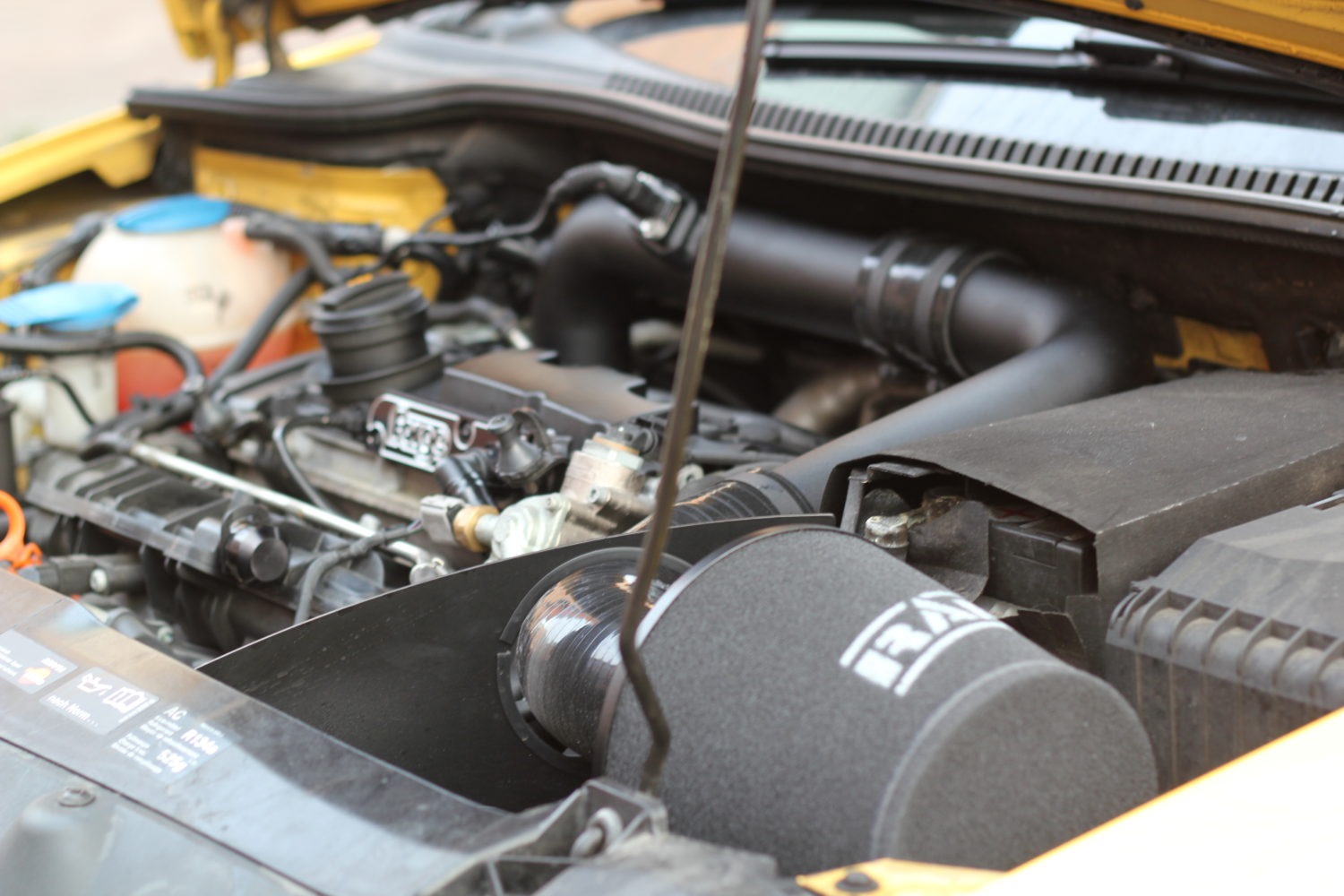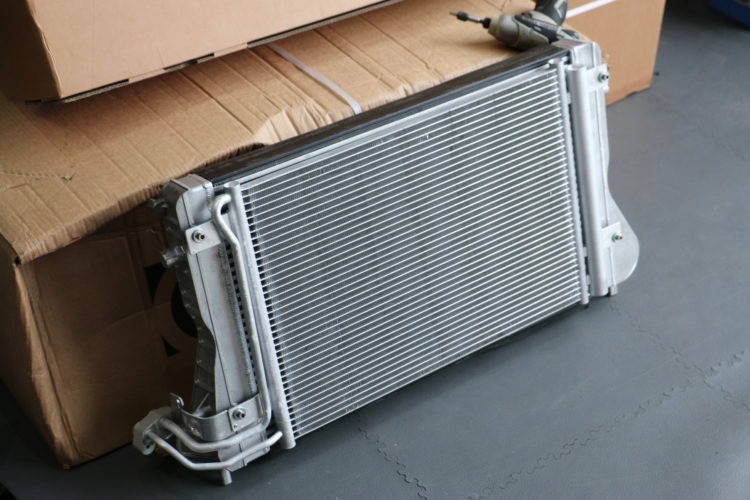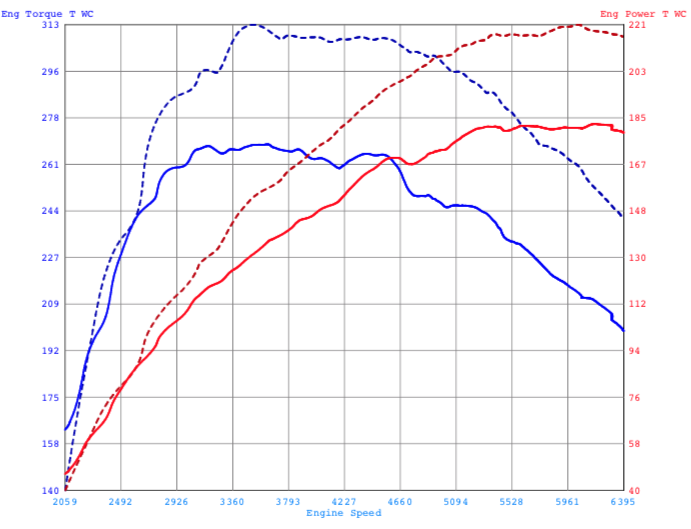
- Menu
- Specialist Vehicles
- Vehicle Tuning
- Vehicle Servicing
- Other Services
- More About Us
- Contact
- Menu
 https://jfautomotive.co.uk/wp-content/uploads/2019/10/IMG_7431-1500x1000.jpg
https://jfautomotive.co.uk/wp-content/uploads/2019/10/IMG_7431-1500x1000.jpg
The VAG group 2.0 TFSI engine has been around for a while now, and it’s a real tuners favourite…but can it beat a new Mk7 Golf Clubsport down the 1/4 mile with only £750 of mods?
The VAG 2.0TFSi engines launched around 2005, and very quickly proved themselves a brilliant candidate for tuning. With these cars getting older and more affordable, they’ve made a brilliant basis for a budget performance build. The 2.0TFSi engine is the 200BHP unit found in the Mk5 Golf GTi & Mk2 Leon FR – the most commonly available power-plant, and the one we’ll be focusing on with this article.
All engines of this age are going to have faults. It’s pretty much a given, so the first step of building a quick BWA is to get it running right first! Firstly, a full service, replacing oil with Millers 5w40 & OE sparkplugs. It’s really important to get the right plugs in it, the VW ones are expensive but worth every penny. Ignition timing is power, and a poor quality, or fake sparkplug from eBay will severely hurt final figures. This ought to cost around £100 all in if you DIY it.
2.0TFSi engines suffer from two major fail points. Firstly the PCV valve, a breather to the top of the engine. Forge Motorsport produce a brilliant delete kit that does away with this completely, for around £60-70. Secondly, the diverter valve – this dumps excess boost pressure, so failure here will result in a loss of boost pressure. This ones really important to sort! There’s a few revisions of the part from VW at around £40, or you can fit a GFB DV+ for around £110 which replaces the rubber diaphragm with a brass piston that won’t split!
The key here is to replace the bare minimum required to get more power out of the engine – there’s no point spending hundreds to get 1-2bhp on a budget build!
The stock airbox is small, restrictive and also it sits directly on top of the engine. This doesn’t help with the intake temps at all, so replacing this with an induction kit is a must. We prefer the Ramair kit as a budget freindly option – it’s simple, works, and sounds great. For £160 it’s a winner!
The TFSi engine runs hot, so an intercooler upgrade is a must. There are a lot of options out there, but the cheapest by far is to use an Audi S3 intercooler. This larger alloy core makes for dramatically lower intake temps, you can pick these up from your local motor factor for less than £300 as a brand new part. New hoses aren’t necessary as the quick release connectors from the old hoses can be cut.
The 2.0TFSi has two catalysts, a primary and a secondary. This makes it quite a restrictive item and a massive heat trap, so a de-cat is ideal. Budget downpipes are availible from eBay, however the one we tried whilst writing this case study had absolutely awful fitment and required a trip to an exhaust fabricator to weld the brackets back on in the correct place…however, it was only £90…proof that you really do get what you pay for & certainly not a part we’d supply for a customers car. We’re unsure how long this is going to last, and would strongly recommend a nicer quality item from Miltek if the budget permits.
Onto the dyno, this 98,000 mile vehicle with less than £750 of performance parts suprised us – Usually a Stage 2 build using premium quality parts would cost upwards of £2,500! After extensive datalogging, the car produced 265BHP & 377Nm. Our dyno is very, very harsh on power figures so this is a pretty good result considering it is built with cheap parts. We also installed our O2 delete software to remove the EML light from the decat, and removed the speed limiter to unlock the full potential of the vehicle.
On the road the car drives like a much more modern vehicle with the increases in power. The stability control isn’t as clever as a modern vehicle, but we’ve only really addressed the engine – and it certainly feels like a modern hot hatch at this power level. Drive-ability, reliability and fuel economy are not compromised. We took it to a local track to really push the car to the limits against a few similar cars – including the Mk7 Clubsport with its ‘Overboost’ function offering 280BHP for a short amount of time!
So, did it beat the Mk7 Golf Clubsport? No. The Golf took it by 0.1 of a second – but given a Mk7 Clubsport will cost you £30,000 you’d expect more of a gap! Both cars did have a manual transmission, making it a fair comparison. The DSG variant with its launch control would present a bit more of a challenge!
It’s a nice cheap set of mods. A competent DIY’er ought to be able to source and install themselves with basic tools. We can supply just parts for the home builder if required. We do think the MK5 Golf/Mk2 Leon makes a great platform for a quick road car. In the sub £3k pricepoint, there’s not a lot else you can modify to offer the same levels of performance for such a small outlay on parts.
275BHP ought to be possible, but another very common fault of the 2.0TFSi engine is clogged intake valves. We fed a small camera down the inlet, and the test car was badly gummed up. We suspect this to be hurting the flow high up in the rev range, thus reducing peak output slightly. Keep your eyes out for another case study documenting the effect of a proper carbon clean on power output!
Regardless, from 197BHP/280Nm to 265BHP/377Nm is a massive jump for the costs involved!
 https://jfautomotive.co.uk/wp-content/uploads/2019/10/IMG_7431-1-750x500.jpg
2.0TFSi With Ramair Filter
https://jfautomotive.co.uk/wp-content/uploads/2019/10/IMG_7431-1-750x500.jpg
2.0TFSi With Ramair Filter
 https://jfautomotive.co.uk/wp-content/uploads/2019/10/IMG_1225-1-750x500.jpg
2.0TFSi Intercooler Off
https://jfautomotive.co.uk/wp-content/uploads/2019/10/IMG_1225-1-750x500.jpg
2.0TFSi Intercooler Off
 https://jfautomotive.co.uk/wp-content/uploads/2019/10/Screen-Shot-2018-06-28-at-11.07.45.png
https://jfautomotive.co.uk/wp-content/uploads/2019/10/Screen-Shot-2018-06-28-at-11.07.45.png
The perfect affordable daily driver
The cars been brilliant. It's no less reliable, or worse on fuel than prior to the works - I really cant fault it!
Iain

Search our ECU tuning options to increase the power and torque of your vehicle and our wide range of performance parts.